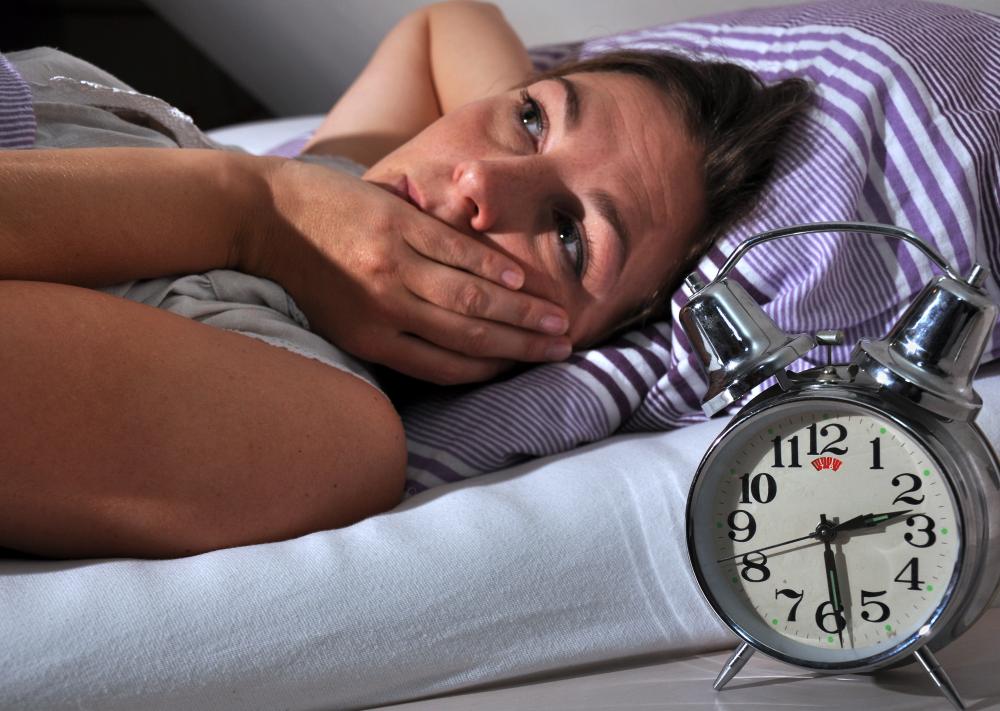At WiseGEEK, we're committed to delivering accurate, trustworthy information. Our expert-authored content is rigorously fact-checked and sourced from credible authorities. Discover how we uphold the highest standards in providing you with reliable knowledge.
What is Behavior Therapy?
Behavior therapy is a type of psychotherapy that focuses on changing undesirable behaviors. It involves identifying objectionable, maladaptive behaviors and replacing them with healthier types of behavior. This type of therapy is also referred to a behavior modification therapy.
Cognitive therapy focuses primarily on the thoughts and emotions that lead to certain behaviors, while behavioral therapy deals with changing and eliminating those unwanted behaviors. However, some therapists practice a type of psychotherapy that focuses on both thoughts and behavior. This type of treatment is called cognitive-behavioral therapy.

Behavior therapy can be used to treat a wide range of psychological conditions including, but not limited to, depression, Attention Deficit Disorder (ADD), Attention Deficit Hyperactive Disorder (ADHD), Obsessive-Compulsive Disorder (OCD), and certain addictions. It may also be used to treat insomnia, chronic fatigue, and phobic behavior. This type of therapy may require fewer treatment sessions than cognitive therapy. However, the length of therapeutic treatment varies with each individual patient.

In some cases, behavior therapy is used as a treatment for obesity. When used for obesity, it starts with analyzing eating and activity patterns, as well as dieting methods and other habits. The therapist then uses information gained through such analysis to identify positive strategies for promoting weight loss, healthier eating habits, and a more positive self-image.

Behavior therapy typically begins with the analysis of a trained therapist. The therapist analyzes the behaviors of the patient that cause stress, reduce the patient's quality of life, or otherwise have a negative impact on the life of the patient. Once this analysis is complete, the therapist chooses appropriate treatment techniques.
Treatments can include such techniques as assertiveness training, desensitization, environment modification, and relaxation training. The therapist may also use exposure and response prevention to work towards controlling the patient's actions. Other commonly used techniques include positive reinforcement, modeling, and social skills training.

In some cases, paradoxical intention techniques may be used in behavior therapy. This type of technique involves encouraging the patient to continue adverse behaviors temporarily. Therapists who use this technique report that it is useful in identifying and removing a wide range of undesirable behaviors.
Another technique commonly used in behavior therapy is called aversive therapy. Aversive therapy involves associating maladaptive behaviors with unpleasant stimuli. In the past, electric shock therapy was commonly used as a type of aversive therapy. Today, however, many psychotherapy experts consider this method unethical.
AS FEATURED ON:
AS FEATURED ON:















Discussion Comments
Behavior therapy is not unethical, although therapists and providers in any field may act unethically. Behavior therapy can be provided with care and compassion. There is no reason why it shouldn't be.
Always research your providers, and if you don't like one, please don't let one therapist determine your opinion of behavior therapy, also known as ABA - Applied Behavior Analysis.
This science (ABA) is the only scientifically proven method of helping children with autism make progress. Will other interventions help? Maybe. But this is the only one with lots of scientific research which provides objective evidence of progress.
Why is this technique considered unethical?
Aversive therapy? Try researching "autism self injurious behavior" to see a case that once responded quite well to emergency -- temporary use of skin shock therapy.
The "aversive" therapy is never aversive when it is less aversive than the bodily harm or health damage done by the behavioral itself. Too bad people still don't get that. Probably because they've never worked side by side with cases like this. So they just judge without experience or knowledge.
Aversive therapy should be available, as emergency intervention, for intractable cases of extreme and chronic self injurious behaviors.
Cognitive therapy is not the opposite of behavior therapy but is a type of behavior therapy. Cognitions are one of the modes of behavior treated in behavior therapy. Specifically, cognitive therapy refers to the method of cognitive restructuring invented by Beck, while behavior therapy is a term encompassing a large number of therapies, all of which focus on the modification of present maintaining conditions (such as the maladaptive cognitions addressed by cognitive therapy).
Cognitive-behavioral therapy refers to the subtype of behavior therapies which deal with cognitions, primarily the second and third generation therapies.
Post your comments